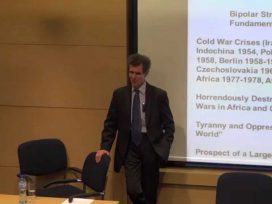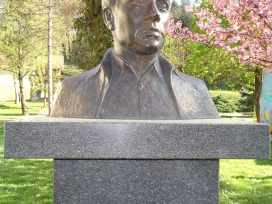Literary perspectives: Lithuania
Almost normal
The literary field in Lithuania has established itself since independence, despite vastly smaller print runs and the onslaught of the mass media. Today, a range of literary approaches can be made out, writes Almantas Samalavicius, from the black humour and social criticism of the middle generation to the more private, realistic narratives of the post-Soviet generation.

